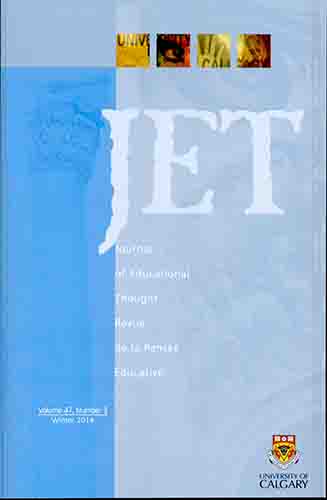Predictors of Student Motivation to Succeed in First-Year College Mathemati cs: A Quantitative Analysis
DOI :
https://doi.org/10.55016/ojs/jet.v47i3.52178Résumé
The paper investigated whether students ' mathematical self-concept and demographic characteristics could be used to predict students' motivation to succeed in first-year college mathematics. A sample of 407 participants consisting of 233 male and 174 female students were surveyed with a 40-item Questionnaire that sought to measure students' mathematical self-concept and motivation. Confirmatory factor analysis supported the existence of a mathematical self-concept scale and four motivational subscales (intrinsic motivation: relevance/significance of math; perception of math; interest/enjoyment of math; & extrinsic motivation: expectation of future income). The correlations among the motivation, self-concept, and demographic variables revealed theoretically consistent interrelationships. Multiple regression analyses indicated that mathematics self-concept, demographic variables, and extrinsic motivational factor accounted for significant amounts of the variance in students' motivation to succeed in first-year college mathematics. The results are discussed in relation to current theory and their implications for teaching and learning mathematics.
Téléchargements
Publié
Numéro
Rubrique
Licence
The Journal of Educational Thought retains first publication rights for all articles. The Journal grants reproduction rights for noncommercial educational purposes with the provision that full acknowledgement of the work’s source be noted on each copy. The Journal will redirect to the appropriate authors any inquiries for further commercial publication of individual articles. All authors wishing to publish in JET will be asked to fill in and sign a Consent to Publish and Transfer of Copyright agreement.
Authors must affirm that any submission to JET has not been and will not be published or submitted elsewhere while under considration by JET.

